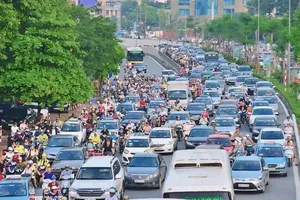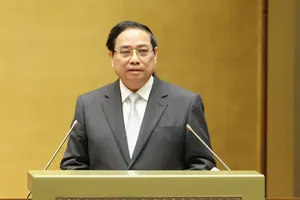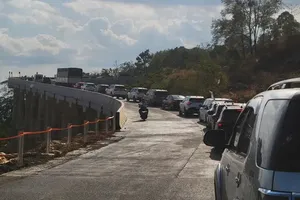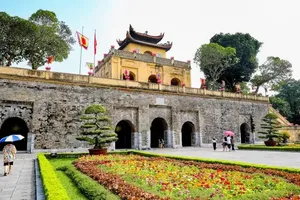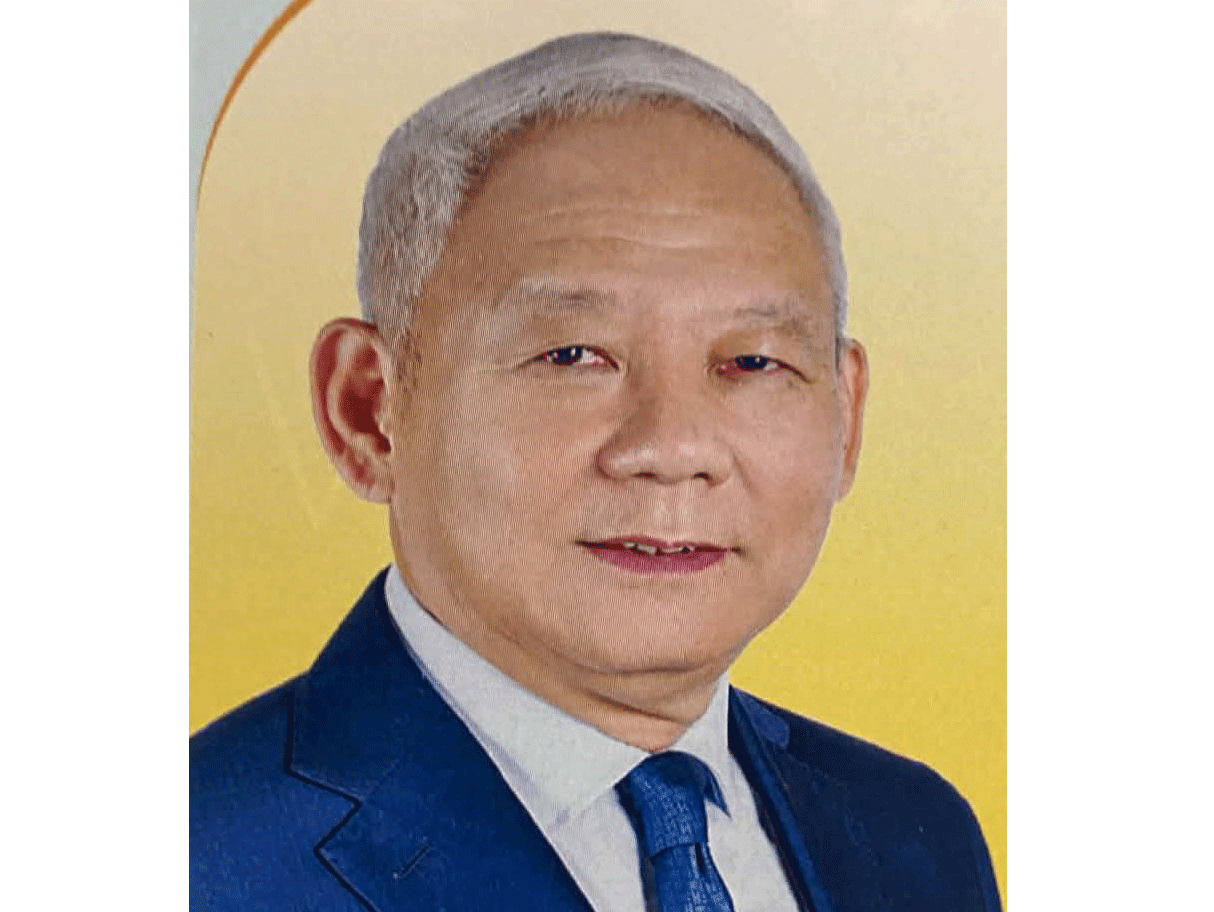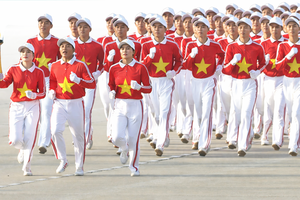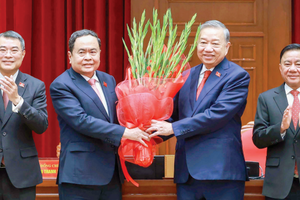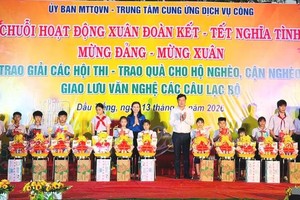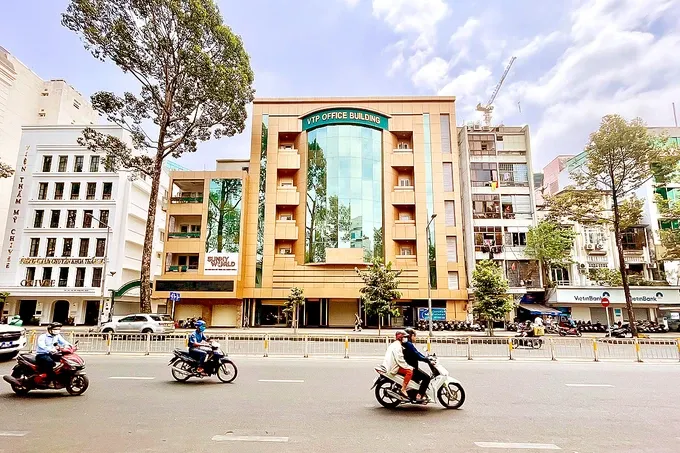
Firstly, Deputy Head Nguyen Thanh Sang listed current challenges when fulfilling the asset recovery tasks. One of the toughest is that the offenders are often highly educated individuals with positions of authority and a deep understanding of the law.
Furthermore, their actions are often intentional, involving sophisticated concealment methods such as destroying documents, falsifying records, or transferring assets to multiple individuals to hinder tracing. These tactics make it extremely difficult for law enforcement agencies to trace the origins of these assets and facilitate recovery.
Corruption and economic crimes frequently occur in such sectors as finance, banking, land, investment, and construction. Therefore, determining the nature of the wrongdoing and the resulting damages requires complex and time-consuming appraisal and valuation procedures.
Additionally, existing regulations governing the control of assets and income of public officials are inadequate. For instance, there are no provisions stipulating the mandatory handling of unexplained assets or income. Moreover, there is a lack of specific regulations regarding early asset recovery mechanisms during the stages of detection, inspection, audit, and investigation.
Secondly, the Deputy Head explained what the city leaders have done to implement directives and resolutions by the Central Government about corruption prevention and control as well as asset recovery.
The HCMC Party Committee and its Standing Board have issued numerous documents to provide leadership and guidance. The city's Steering Committee for Corruption Prevention has directed all levels of Party organizations, Party officials, and heads of agencies to strengthen coordination and conduct inspections and audits. Asset recovery has been established as a key performance indicator for all units.
In particular, aims to enhance the Party's leadership in coordinating among agencies to recover assets lost or misappropriated in corruption and economic crime cases.
Commenting on the cooperation among functional agencies in HCMC in asset recovery, Deputy Head Nguyen Thanh Sang said that with Directive 30-CT/TU dated January 4, 2024 (enhancing the Party's leadership in coordinating among agencies to recover assets lost or misappropriated in corruption and economic crime cases), the responsibilities of relevant state agencies have been enhanced to mitigate tardiness in leadership or lack of commitment and objectivity in carrying out asset recovery tasks.
There have been reductions in situations of late information provision mong state units for asset recovery that might lead to dissipation or loss of assets, and delays in the execution of judgments, causing losses to the state, collectives, and individuals.

The Deputy Head then mentioned feasible solutions to boost asset recovery tasks in the upcoming time. Accordingly, the Party Committee at all levels and city leaders have to directly lead and be accountable for these crucial tasks. They must disseminate information and raise awareness among officials to strengthen their sense of responsibility.
It is also necessary to expedite the verification and investigation of cases involving particularly severe damages and promptly apply measures to fully recover assets, preventing their dissipation and loss to the state. Emphasis should be placed on verifying and applying legal provisions in international cooperation when recovering assets that have been transferred or smuggled abroad.
Deputy Head Nguyen Thanh Sang stressed the crucial role of the personnel carrying out asset recovery as well as propaganda activities. The former must be properly equipped with legal and professional knowledge and trained in moral qualities and political integrity to effectively combat corruption and recover assets.
The latter aims at raising public awareness and organizational participation in the fight against corruption. Praises and rewards must be promptly delivered to collectives, officials of law enforcement agencies, functional agencies, and citizens who have made outstanding contributions to asset recovery.
Concurrently, it is essential to review and improve legal provisions on corruption prevention and asset recovery, and propose the expeditious application of a national information database on assets to support the verification and tracing of misappropriated and lost assets.
“Improving asset recovery is of paramount importance. It serves as a crucial metric for the effectiveness of our efforts to combat corruption and wrongdoing in the current context, significantly contributing to the overall outcomes of our anti-corruption campaign, as outlined in the 13th Party Congress Resolution.”
Deputy Head Nguyen Thanh Sang of the HCMC Party Committee's Internal Affairs Board
Deputy Head Ha Hai of the HCMC Bar Association shared that competent authorities should focus on studying, amending, and supplementing the provisions of the Penal Code, the Code of Criminal Procedure, and implementing regulations to prioritize asset recovery in cases of embezzlement and corruption.
Additionally, it is essential to establish a database system to monitor asset fluctuations, implement mechanisms for handling suspected assets and income, and incentivize agencies to recover more corrupt assets, thereby enhancing the effectiveness of anti-corruption efforts and improving the recovery of assets lost or misappropriated in economic and corruption criminal cases.
Ho Quan Chinh, Head of the Civil Enforcement Training Department of the Judicial Academy – HCMC Branch proposed that to enhance the effectiveness of asset recovery, it is necessary to devise a comprehensive approach combining various solutions, such as improving legal mechanisms, strengthening enforcement capacity, and promoting international cooperation.
Specifically, a mechanism should be introduced, requiring officials to declare their assets transparently and mandating public disclosure to enable citizens, the press, and independent organizations to oversee this process. In terms of social policy, measures should be adopted to encourage individuals and businesses to use non-cash payment methods. Finally, mechanisms must be developed to protect and encourage citizens and the press to participate in monitoring, detecting, and reporting acts of corruption.
